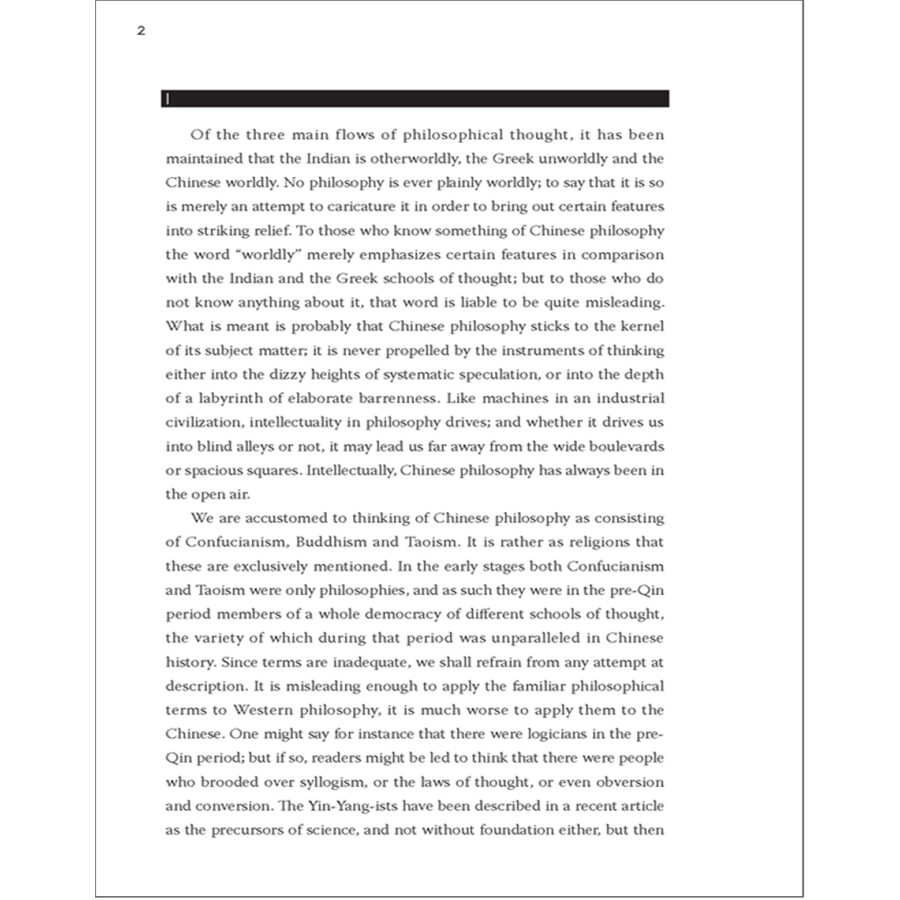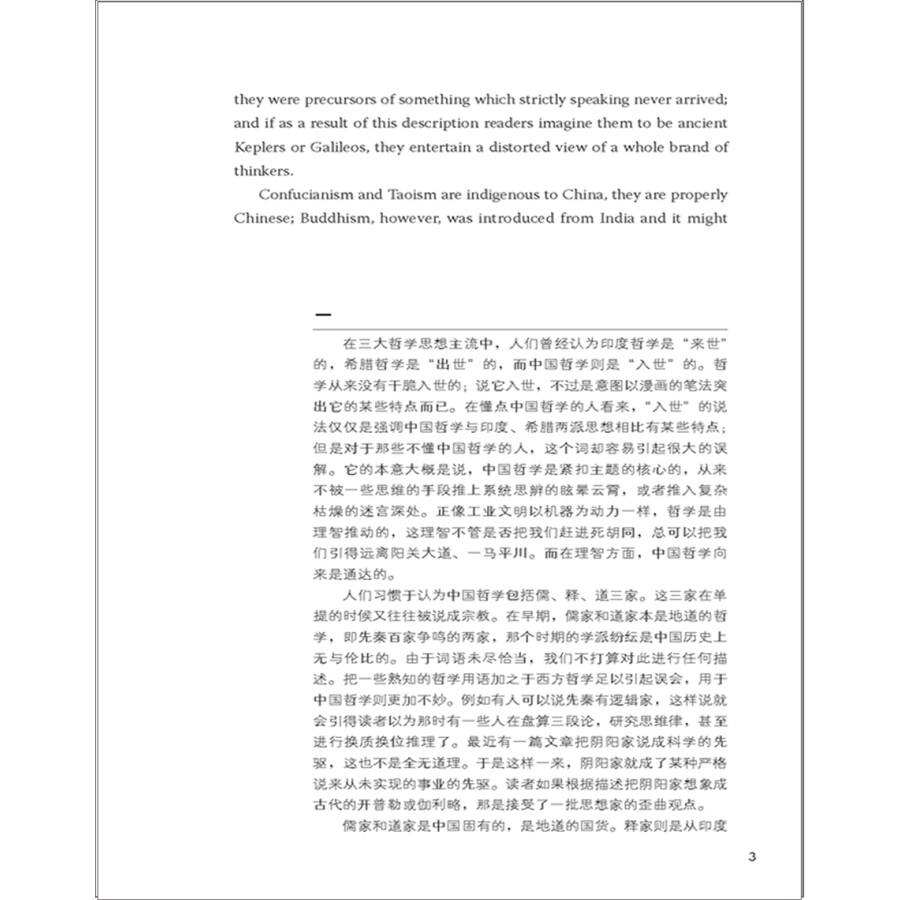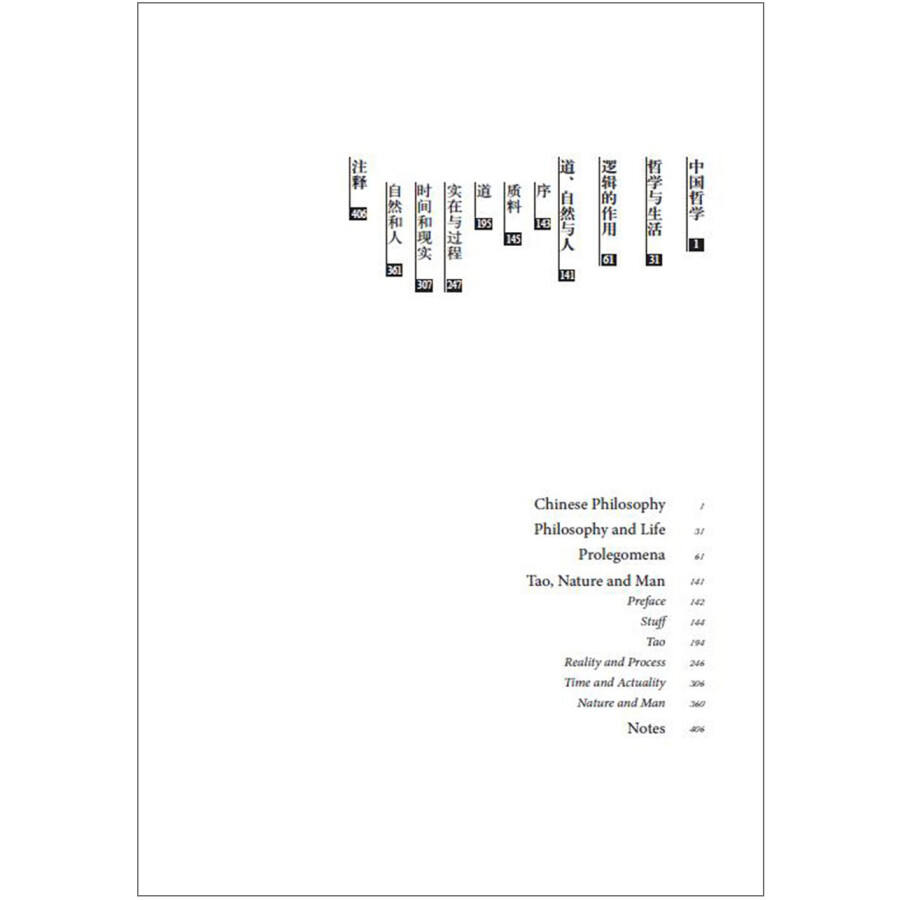The book Tao, Nature and Man selected four most valuable English theses of Mr. Jin Yuelin on philosophy and logic, which can best reflect his research results. Mr. Jin Yuelin's wonderful philosophical exposition and authentic English will make this book a rare reading for Chinese and foreign scholars and philosophers. It will also promote the popularization of Chinese philosophy and logic among readers.



While certain internal restraint through philosophy or religion and certain external restraint through law are required in any society and admitted by Chinese philosophy, it does not advocate the frustration of the functioning of the primary instincts. There is as a result something which, for lack of an adequate term, might be described as natural naturalness or contented contentedness. By these terms we do not mean to insinuate that there are fewer instances of cruelty or barbarity in Chinese history than in that of any other nation; evidences of want on destruction, or blood-thirstiness, or of desires running rampant seem to abound in Chinese history as anywhere else. What is meant is rather that there isn't that unnaturalness which Oscar Wilde saw in the naturalness of a Victorian. The Chinese may have something to say against unnaturalness, but they do not make a fuss over being natural on the one hand, and seem to be quite contented with their contentedness on the other. Perhaps in modern times we are accustomed to regarding contentedness as stagnation, as mental laziness, or as spiritual snuggery.
The modern point of view is essentially one that encourages revolts against one’s self, producing as a byproduct such psychological wear and tear that ease and equanimity in life can no longer be maintained. It is a point of view that is opposed to the one we are trying here to describe. The Chinese are contented with their contentedness, exhibiting ideologically the attitude that each to himself is something that is given, and therefore something to be accepted; to borrow a phrase so admirably employed by F. H. Bradley, each has his “station and life,”and in them or it he has his natural dignity. We are not speaking here of the heightened philosophical state attainable only by the few. Although Confucianism allows everybody the possibility to become a saint, failure to do so does not cause any psychological strain. Given this attitude concerning one’s station and life, one is not merely at one with nature, but also at one with society.
哲学或宗教给人一种内在的约束,法律给人一种外在的约束。这类约束是任何社会都需要的,也都为中国哲学所承认,但是这并非鼓吹取消各种原始本能的作用。这样就产生了一种情况,由于缺乏恰当的词语,可以姑且把它描述为自然的合乎自然,或者满意的心满意足。我们的意思并不是用这样的词语暗示说,残酷、野蛮的事例在中国历史上比任何其他民族少;杀人如麻、嗜血成性、为所欲为的事情在中国历史上跟别处一样俯拾皆是。我们的意思是说,奥斯卡•王尔德在维多利亚时代的人身上合乎自然的状态里看到的那种不合自然,在中国人身上是没有的。中国人或许反对不合自然,但是一方面并不吹捧自然的状态,另一方面也似乎非常满意于自己的心满意足。
在现代,我们大概惯于认为心满意足就是停滞不前、精神松懈、苟且偷安。这种现代观点本质上是鼓励向自己造反,其副产品是心理受折磨,再也不能保持生活上平安宁静。这个观点是与我们在这里试加描述的观点背道而驰的。中国人满意于自己的心满意足,表现出一种态度,认为对他自己来说,每一件事都是给定的,因而都是要接受的;借用弗朗西斯•赫伯特•布拉德利一句名言来说,就是人人各有其“位分和生活”,其中有他自己的自然尊严。这里我们谈到的并非只有少数人才能达到的至高无上的心理状态。儒家虽然认为人人都可以成为圣贤,但是做不到也并不形成心理负担。既然见到人各有其位分和生活,一个人就不仅与自然融为一体,而且也与社会融为一体了。